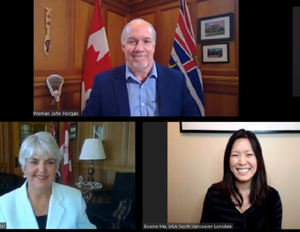
Friday May 8, 2020 ~ BC
by Mary Brooke ~ West Shore Voice News
On May 6, Premier John Horgan announced BC’s Restart Plan, a phased approach to easing restrictions and restarting the economy. Now the work of explaining it to the public and recapturing a political following in the new normal begins.
This afternoon May 8, the Premier alongside Deputy Premier and Finance Minister Carole James held a live virtual town hall on Facebook to answer the public’s questions about the Restart Plan. The video will be posted at
www.facebook.com/johnhorganbc/ for repeat viewing.
- Premier Horgan explained the overview of how we’ve arrived so quickly at this point where we’ve already been in a pandemic for over three months. About the new normal where people can go out and be in restaurants, stores and places in the community: “Those days are not far off, but they’re not here yet,” Horgan said today.
- Finance Minister James said the government is wanting to do what is “best for business, the economy and people – to open the economy for the long term”. What she’s looking forward to in the new normal? Holding her grandchildren and hugging her parents. She said there is a light at the end of the tunnel through the government’s “measured and planned approach”.
Businesses will have to have a plan for social distancing, to keep people safe, and building confidence in economy and communities.
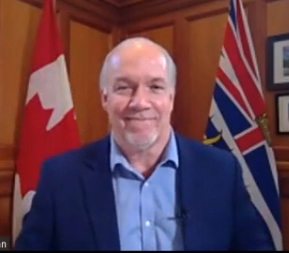
Horgan said there is a great deal of concern. “COVID-19 is nothing we could have imagined just three short months ago.” In looking to summer 2020 he is most concerned about economic well being, social cohesion of communities, and personal well being.
“The provincial health officer has a methodical plan to slowly come back to what will be the new normal,” the Premier said. “To back to way in January, far from it. Large gatherings are off the agenda. What does that means for economic activity, schools, local sports and recreation program, accessing the special public amenities we have in BC? Slowly we will start opening things up,” he said.
“To rebuild confidence, we need to make sure people are sure they are going to be safe and workers safe as well.” Horgan said there will be new techniques of delivering products to the public such as groceries delivered to the curb, one-lane traffic down the aisles in stores, and changes in how we interact. All of this is going to be here for the foreseeable future, he guided.
“As we bring on more parts of the economy there will be guidelines to operate under,” Horgan said. He mentioned that WorkSafeBC is working on sector tables (guidelines) for hospitality, restaurants, and how to work with WorkSafe and public health offices. These are “guidelines for operation so that customers can be confident (to go into stores). “The public wants us to do that. Let’s get going but not too quickly,” he said.
Back to school, slowly in phases:
On the matter of schools — teachers and principals are making sure that everyone will be safe and well cared for, while students learn academics and how to interact socially. There will be a gradual return to regular classrooms, but no regular classes until September, the Premier explained.
There are about 5,000 “kids in classroom now”, said Horgan, those being the children of frontline workers who need to have their children cared for during the day. He said that virtual learning has been “quite successful” but that “nothing replaces being in the classes with your kids”. He said that a plan for June is not mandatory. “Parents need to be comfortable that kids are safe. Our whole restart plan relies on people being confident. People are the economy, the economy is people.”
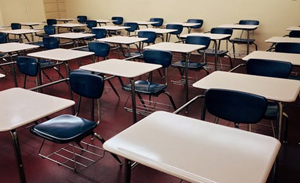
K-12 SCHOOLS in Phase 2 (from Restart BC): Routine daily screening for all staff and students | Routine and frequent environmental cleaning
| Implement a range of options to reduce transmission including smaller class sizes; separation of desks; potential of differential school attendance on a routine basis each week; strong focus in the daily routine on frequent washing of hands and other hygiene practices; small group activities and wearing of non-medical masks for those group activities; no high contact sports; limit group sizes of extracurricular activities. | Explicit policy for children, youth and staff who have the symptoms of a cold, flu, or COVID-19 with coughing or sneezing not coming into school or taking part in extra curricula activities and sports. | Planning over the summer for increased use of remote online learning, especially for high school children. | Early arrival and self-isolation for 14 days of international students.
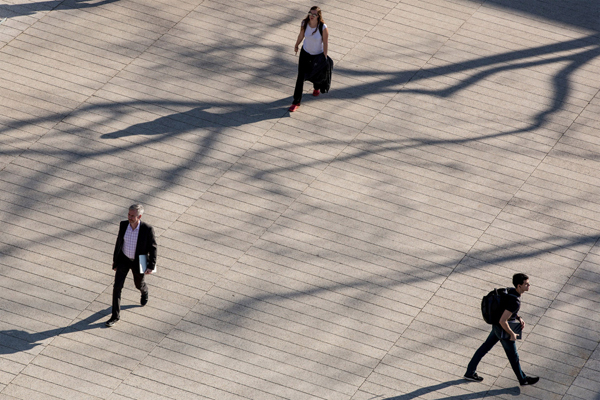
POST SECONDARY INSTITUTIONS in Phase 2 (from Restart BC): Routine daily screening for all staff and students | Routine and frequent environmental cleaning | Explicit policy for students and staff who have the symptoms of a cold, flu, or COVID-19 with coughing or sneezing not coming into classes or taking part in extra curricula activities and sports. | Increased use of on-line learning balanced against the need of social interaction for learning and development | Early arrival and self-isolation for 14 days of international students.
Businesses getting restarted:
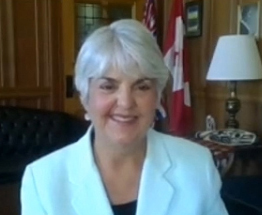
Carole James said: “BC is in a very good position. We are well-positioned because of our strong foundation when it comes to the economy. But that doesn’t mean that people aren’t hurting. Numbers represent families, individuals, business owners who are struggling and worried about whether will be able to restart.” She described BC as a small open economy that will be impacted by global trends.
“Businesses are getting down to preparing plans for each sector,” said James, especially with regard to how workers and customers can physically distance. “We are going to see our economy rebuild,” she said, though adding that “it’s been tougher than others”, especially those which rely on international visitors. “It will be a longer time until see that kind of travel coming back.”
The finance minister said she is working with business leaders, first nations, the not for profit sector, and labour with regard to coming back in Phase 2 and beyond. There will be “different timing for different sectors”.
Transportation Sector:
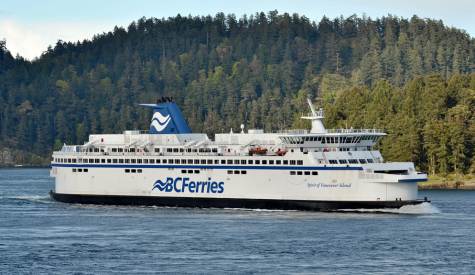
Premier Horgan got into some details about the “complete dropoff of use of public transit” including BC Ferries. There’s been a drop off of 80% to 90% ridership in those areas. TransLink in Vancouver depends on the fare box for a significant part of their revenue. He rationalized that if there are wage subsidies for large transportation companies like Air Canada, that non-public sector companies like BC Ferries also need support.
“Managing the public resources is a critically challenging part of being in government,” said Horgan. “Government makes choices and decisions in the best interest of the greatest number of people.” He said there will be plans to expand billions in capital investment including more buses and routes at a time when we see a complete collapse of the system. Cleaning and physical distancing and wearing masks will be important parts of getting public transit rolling again.
Financial Supports at the moment:
- John Horgan – “The last thing we need is a dislocation of renters. Make sure tenants are paying bills the government is helping, so we don’t have dislocation.”
- Carole James – “We tried to build our plan to fill gaps for the short and long term, which includes an increase in the GST rebate in July for low income earners.”
Child care as part of a strong economy:
Child care is good for children, parents and the economy, explained Carole James. “Women returning to the workforce is difficult. Good quality child care helps with good productivity of employees. and provides support for employers this way.” On this topic, the Premier said that “everyone now understands the importance of child care” as something that is fundamental to families going forward.
Getting to Know Phase 2: [full strategy document]
As for re-opening the economy: “Smaller operations will be more challenged, for sure. Many restaurants into Phase 2 will be opening their doors and encouraging people to come in,” said Premier Horgan in the town hall. He noted many restaurants are “focusing on takeout that can’t keep pace with command at the door”.
Phase 2 outline — these are sectors that can open under enhanced protocols: [See Restart BC]
- Restoration of health services
- Re-scheduling elective surgery
- Medically related services:
- Dentistry, physiotherapy, registered massage therapy, and chiropractors
- Physical therapy, speech therapy, and similar services
- Retail sector
- Hair salons, barbers, and other personal service establishments
- In-person counselling
- Restaurants, cafes, and pubs (with sufficient distancing measures)
- Museums, art galleries, and libraries
- Office-based worksites
- Recreation and sports
- Parks, beaches, and outdoor spaces
- Child care
Provincial Parks Re-Opening May 14:
BC provincial parks will be open for day-use starting Thursday May 14. Phase 2 of trying to get the economy back to (the new) normal starts on Tuesday May 19 after the Victoria-Day long weekend.
“We’re all in this together. It will take time and patience,” said Horgan.
==== About the speakers today:
- Hon John Horgan is the MLA for Langford-Juan de Fuca (which includes Langford, Sooke and Juan de Fuca out to Port Renfrew). Constituency contact: 250-391-2801
- Minister Carole James is the MLA for Victoria-Beacon Hill. Constituency phone: 250-952-4211
![Hon John Horgan, MLA [Langford-Juan de Fuca]](https://islandsocialtrends.ca/wp-content/uploads/2020/04/LFDJdFConstituency-WSVN-covid-banner-728x90-web.jpg)


